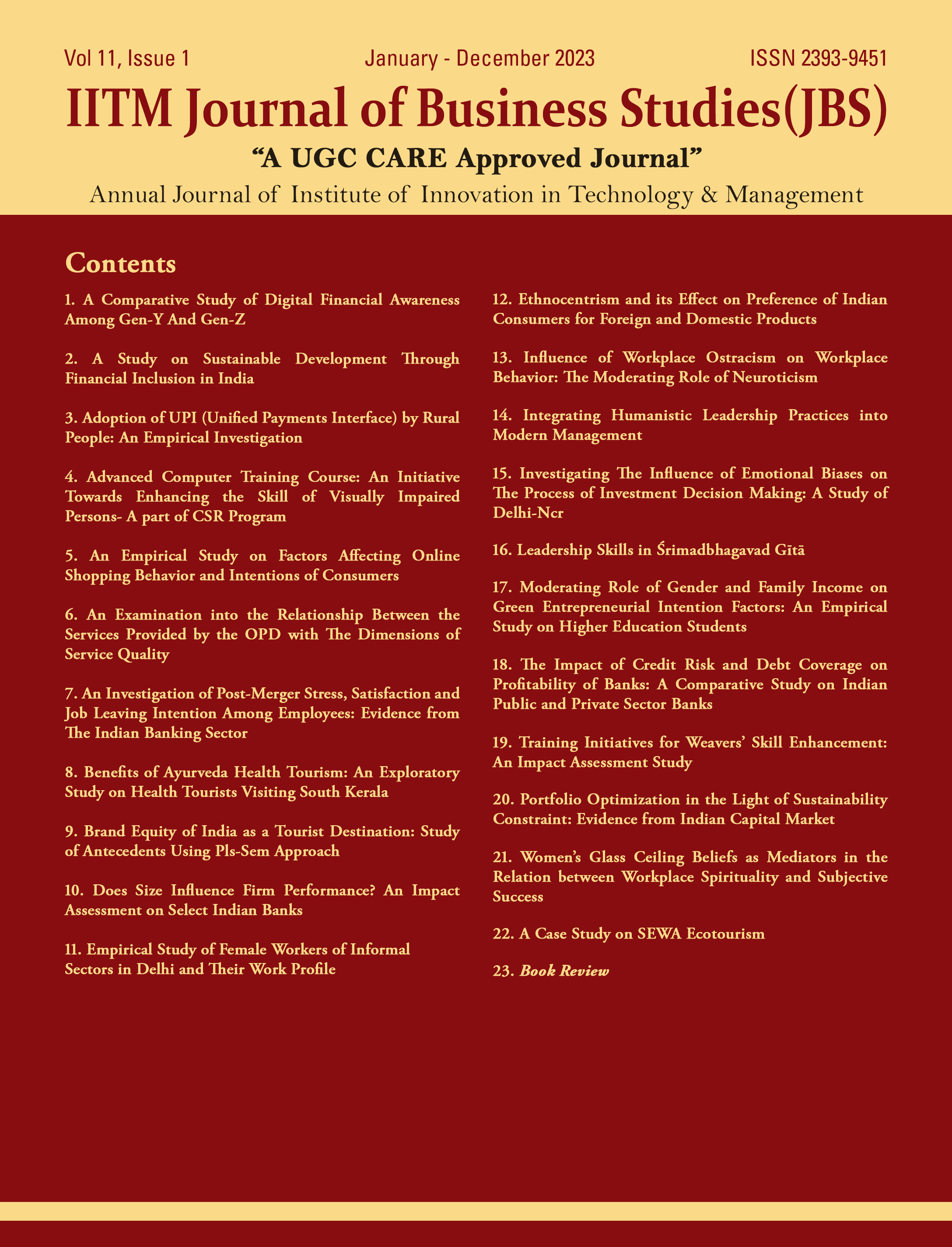An Effect of Spiritual Intelligence on Job Efficiency of Professionals in Delhi Region
Keywords:
Spiritual Intelligence, Job efficiency, Success, MoralAbstract
In current era to make the world safer place for upcoming generations, one must endeavor to raise the individual moral stature by giving consideration to spiritual in!elligence. Spiri lual intelligence is the mind's capacity to handle real and spiritual aspects of life. This study explores the relationship between spiritual intelligence and iob efficiency of professionals in Delhi Region. The primary and secondary data were used in this research. Here, the sample size is taken of sixty professionals. The study shows that Spiritual Intelligence helps them to develop optimistic outlook towards life & work which in turn provides positive result to professionals. It hos been found in the research that Spiritual Intelligence enhances the work efficiency & effectiveness of their decisions. The study further explores that When spirituality will be completely embraced in our daily life, one will not only make a living in this physical world, but also make living a success, and experience every moment of life as new, every day as o day of uplift and blessing, and enioy lasting peace.
References
Atmaramani (1996). "Restoring investor confidence", The Hindu Survey of Indian Industry, pp 435-437. 2. Ellen, Schultz (1992). "CD's pegged to college costs look good to parents, but do they make the grade?" The Wall Street JournaL March 29, 1992, p. l.
Festinger, L. (1957). A Theory of Cognitive Dissonance, Stanford: Stanford University Press. TM Journal of Business Studies (JBS) 47
Volume 4 Issue 1 January - December, 2017 ISSN 2393-9451
Kothari, C.R. (2006). Research Methodology, 2nd edition, New Delhi: New Age International Pvt. Ltd., pp 11, 130.
Rajan, R. (1997). "Chennai Investor is conservative", Business Line, Feb. 23, p 25 6. Rajan, R. (1998). "Stages in life cycle and investment pattern", The Indian journal of Commerce, Vol. 51(2 & 3): 27 - 36.
Rathnamani, V (2013). "Investor's Preferences towards Mutual Fund Industry in Trichy", IOSR]ournal of Business and Management, Vol. 6 ( 6): 48-55.
Singh, P. (2005). Investment Management, 6ch edition, Himalaya Publishing house, pp 1-5 9. Subramanyam, P.S. (1999). "The changing dynamics", The Hindu Survey of Indian Industry, pp 109-111.
Thaler, R.D., Kahneman, and Knetsch]. (1992). "The Endowment effect, loss aversion and status quo bias", in R. Thaler, (ed.), The winner's curse: Paradoxes and anomalies of economic life, New York: The Free Press.

